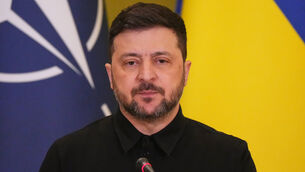Rebels 'push back Gaddafi troops'
Libyan rebels pressing to break a two-month siege in Misrata said they had captured the local airport and pushed Muammar Gaddafi’s forces ever further from the port city’s western outskirts.
The reported advances were the latest in a recent flurry of accounts of rebel victories, coinciding with intensified Nato air strikes on Gaddafi’s forces in several areas of Libya.














